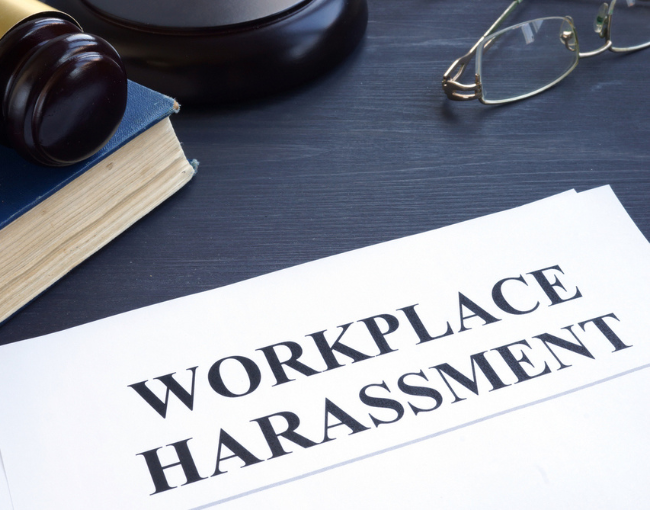Home > Insights > Publications > EEOC Issues Enforcement Guidance on Harassment for the First Time in Years
On April 29, 2024, the Equal Employment Opportunity Commission issued its “Enforcement Guidance on Harassment in the Workplace,” superseding its previous enforcement guidance on the topic, which was last issued 25 years ago. While the Enforcement Guidance has no legal effect, it is chock-full of valuable guidance for employers as to the EEOC’s interpretation of federal laws prohibiting harassment.
The Enforcement Guidance lays out, in detail, what the EEOC considers to be harassment in light of changes to the legal and cultural landscape since its last guidance was issued. The EEOC addresses each type of harassment separately, providing 20 examples of conduct it considers to be harassment. Some of these are far more expansive than prior thinking, such as:
- Race: Harassment based on race can include harassment based on “traits or characteristics linked to an individual’s race.” The EEOC specifically refers to names, cultural dress, accent or manner of speech, and physical characteristics, such as hair textures and hairstyles.
- Color: The guidance clarifies that color-based harassment is independently covered by Title VII, specifically harassment based on an individual’s pigmentation, complexion, skin shade or tone, providing the example of a supervisor who harasses darker-complected Black employees but not Black employees with lighter skin tones.
- Religion: The EEO states that religious harassment includes explicitly or implicitly coercing employees to engage in religious practices at work. The guidance gives the example of an owner of a pest control company who encourages (but does not require) employees to participate in his religious activities and favors employees who do.
- Sex: The EEOC states that sex-based harassment includes harassment based on pregnancy, childbirth, or related medical conditions. This “can include issues such as lactation, using or not using contraception, or deciding to have, or not to have, an abortion” if that harassment is linked to the individual’s sex.
- Sexual Orientation and Gender Identity: In line with the Supreme Court’s 2020 Bostock v. Clayton County decision, the EEOC clarified that sex-based discrimination includes discrimination based on sexual orientation and gender identity. The guidance gives numerous examples of possible harassment, including outing (disclosure of an individual’s sexual orientation or gender identity without permission), misgendering, and denial of access to a bathroom consistent with the person’s gender identity.
- Retaliatory Harassment: The EEOC’s guidance also addresses “retaliatory harassment” — i.e., harassing an employee because the employee engaged in a protected activity by opposing an employer’s unlawful discrimination or participating in an investigation, hearing, or proceeding. Because the anti-retaliation provisions of federal law prohibit any conduct that would discourage an employee from engaging in protected activity, the EEOC states that conduct can be retaliatory harassment “even if it is not sufficiently severe or pervasive to alter the terms and conditions of employment by creating a hostile work environment.”
- Intraclass and Intersectional Harassment: The Enforcement Guidance also notes that harassment can occur even if the harasser and targeted employee are members of the same protected class. For instance, the EEOC describes a scenario in which a supervisor, who is over 40, harasses an employee who is also over 40 related to his age. Additionally, the EEOC notes that an individual can be harassed based on two protected characteristics, such as an employee who is harassed because she is an older woman.
- Stereotyping: The EEOC discusses stereotyping and when it amounts to harassment at length. The Enforcement Guidance explicitly notes that harassment based on stereotypes “need not be motivated by animus or hostility toward that group.”
In addition to the above, the EEOC’s new guidance discusses what constitutes a hostile work environment, employer liability for harassment, and potential defenses to liability. The guidance clearly outlines the legal standards required for
an employee to establish a hostile work environment, as well as when an employer can be held liable for supervisory and non-supervisory employees’ harassing conduct. Further, the EEOC outlines how employers can effectively defend against liability
by preventing harassment or taking action in response to harassment about which the employer knew or should have known. Finally, the EEOC issues several educational resources, including documentation for employees and small businesses (see
EEOC Releases Workplace Guidance to Prevent Harassment | U.S. Equal Employment Opportunity Commission).
The entire guidance can be found here: Enforcement Guidance on Harassment in the Workplace | U.S. Equal Employment Opportunity Commission (eeoc.gov)
What’s Next for Employers
Employers should review the EEOC’s guidance to understand the current legal landscape related to harassment claims under federal law. Additionally, this guidance should prompt employers to review and update their anti-harassment and discrimination
policies, among others, to ensure compliance with federal law. Finally, employers should consider whether additional training is warranted for supervisory employees to ensure they understand their obligations when it comes to harassment in the
workplace.
Employers should contact their Thompson Coburn attorney to determine next steps for their company.

